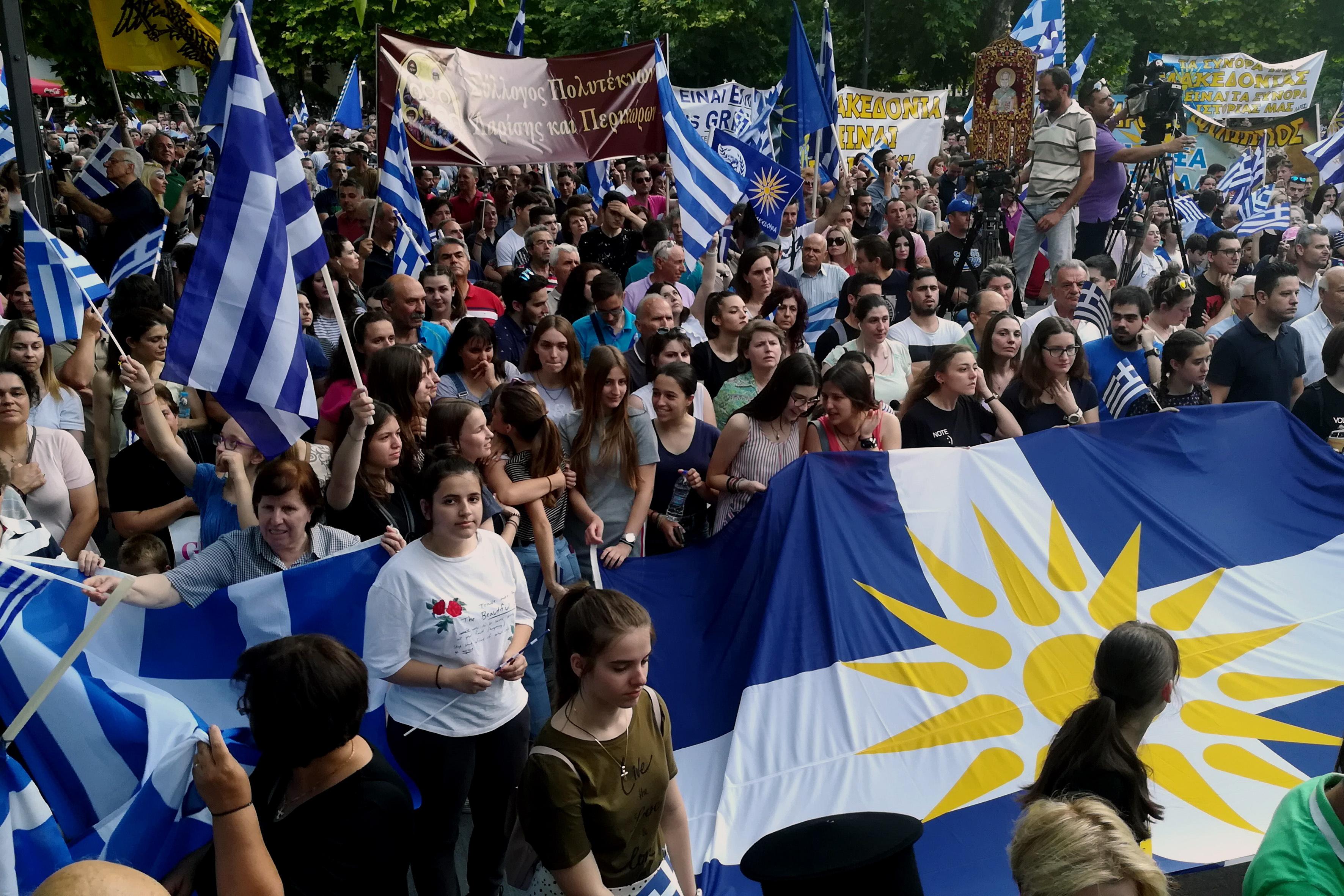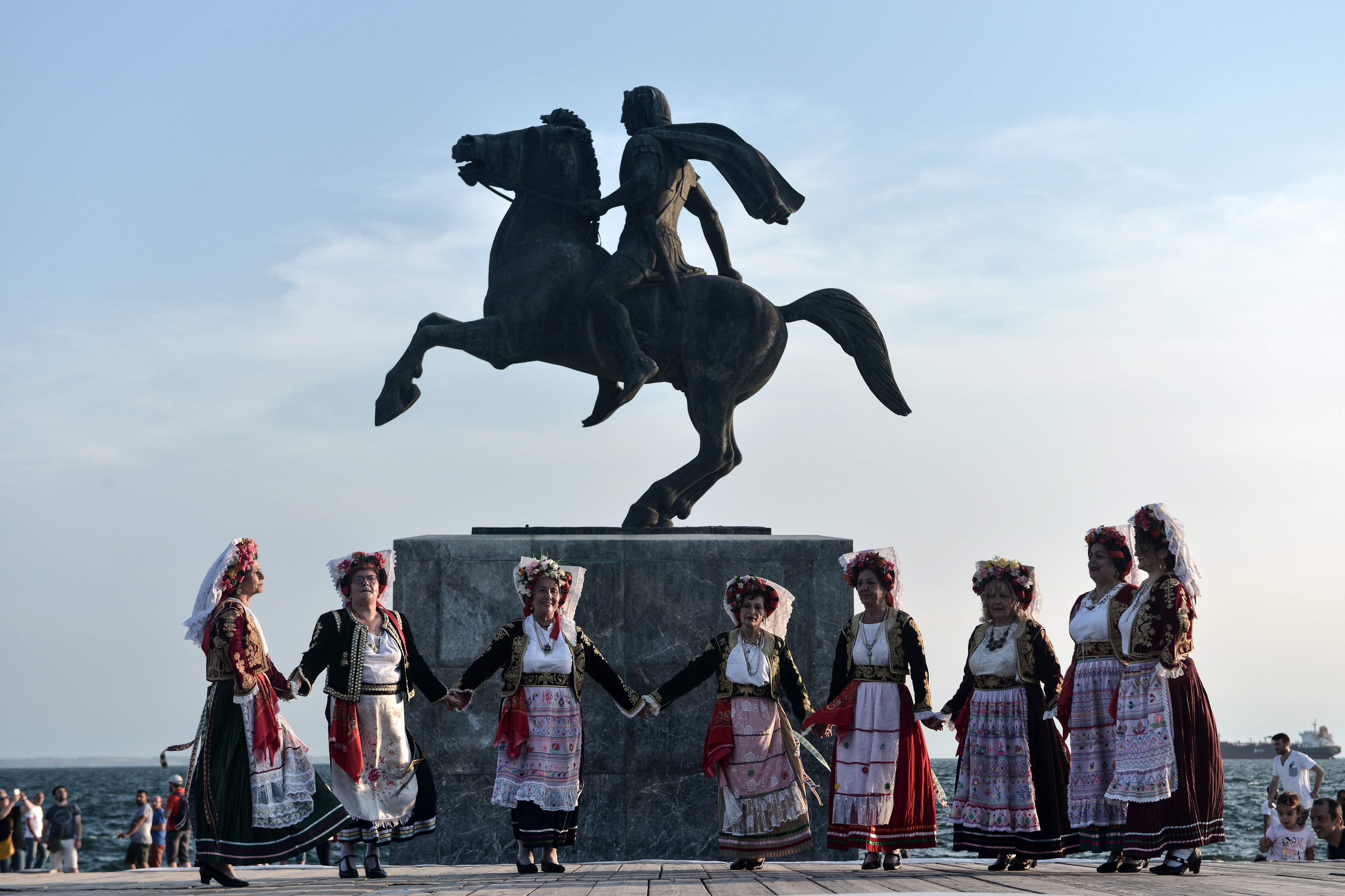
Why is Macedonia changing its name, what is the Greece dispute and will the Republic of North Macedonia join the EU?
The Balkan nation has agreed to change its name after an acrimonious 27-year dispute with its neighbour Greece
MACEDONIA has agreed to change its name following a bitter 27-year dispute with its neighbour Greece.
The nation will now be known as the Republic of North Macedonia – but why has it been renamed and what does it mean? Here's what you need to know.
Why has Macedonia changed its name?
The name change comes after 27 acrimonious years of dispute and protests between Greece and the Republic of Macedonia.
It all stems from the name Macedonia already belonging to an ancient northern region of Greece.
When the Socialist Republic of Macedonia broke away from Yugoslavia in 1991 and adopted the name Macedonia, it prompted fury from Greece.
They feared that the new nation would attempt to expand its territory into Greek Macedonia, which borders the Republic.
Many Greeks were also angered by what they saw as an attempt by the Slavic nation to claim Greek heritage as their own.
For the past 27 years, Greece objected to their neighbour's name and vetoed their attempts to join Nato and the EU.
On June 12, Greek Prime Minister Alexis Tsipras and his counterpart Zoran Zaev announced they had agreed on "Republic of Northern Macedonia" as the nation's new name.
On January 11, Macedonia's parliament approved an amendment to the constitution to allow the move to go ahead.
The nationality of the country's citizens will be listed on official documents as "Macedonian/citizen of the Republic of Macedonia".
Zaev described it as a "historic agreement of the century", which "will strengthen the Macedonian identity".
He said: "We have been solving a two-and-a-half decade dispute ... that has been drowning the country."
Tsipras reassured Greeks, who generally oppose any use of the name Macedonia, that their neighbour "cannot and will not be able in the future to claim any connection with the ancient Greek civilisation of Macedonia".
Will the Republic of North Macedonia join the EU?
Throughout their dispute Greece has steadfastly vetoed ongoing attempts by Macedonia to join the EU and Nato.
However, a key feature of their agreement is that the Greeks will stop preventing their smaller neighbour from joining the international institutions.
As long as Macedonia completes constitutional changes included in the deal, Greece will then back invitations for them to join Nato and start negotiations on joining the EU.
However, Tsipras warned: "If the constitutional amendment is not successfully completed, then the invitation to join Nato will be automatically rescinded and the accession talks with the European Union will not start."
European Council President Donald Tusk backed the deal, tweeting: "Sincere congratulations to PM @tsipras_eu and PM @Zoran_Zaev.
"I am keeping my fingers crossed. Thanks to you the impossible is becoming possible."
How is Alexander the Great involved?
Alexander the Great is the most famous and enduring emblem of Greek Macedonia, and has played a symbolic role in the dispute.
The legendary ancient king was born in Pella, which falls in modern day Greece, and is a hero of Hellenic culture.
MOST READ IN WORLD NEWS
However, after gaining independence in 1991, the Republic of Macedonia named both its capital's main airport and a major motorway after Alexander.
One of the indications that the rift between the nations was healing came when Macedonia opted to rename both earlier this year.
The airport has been renamed International Airport Skopje and the motorway, which runs to the Greek border, had its name changed to Prijatelstvo - which means "friendship".









